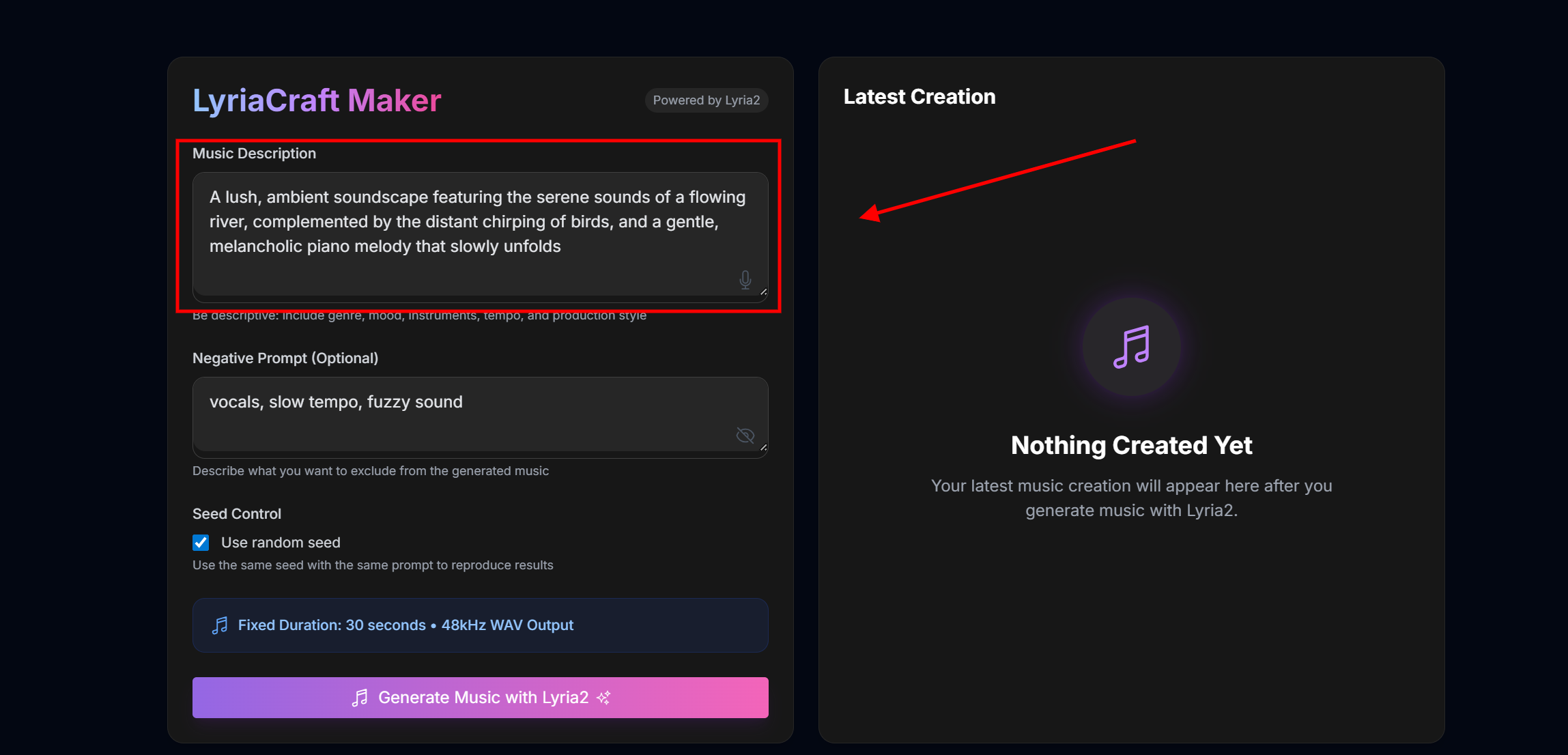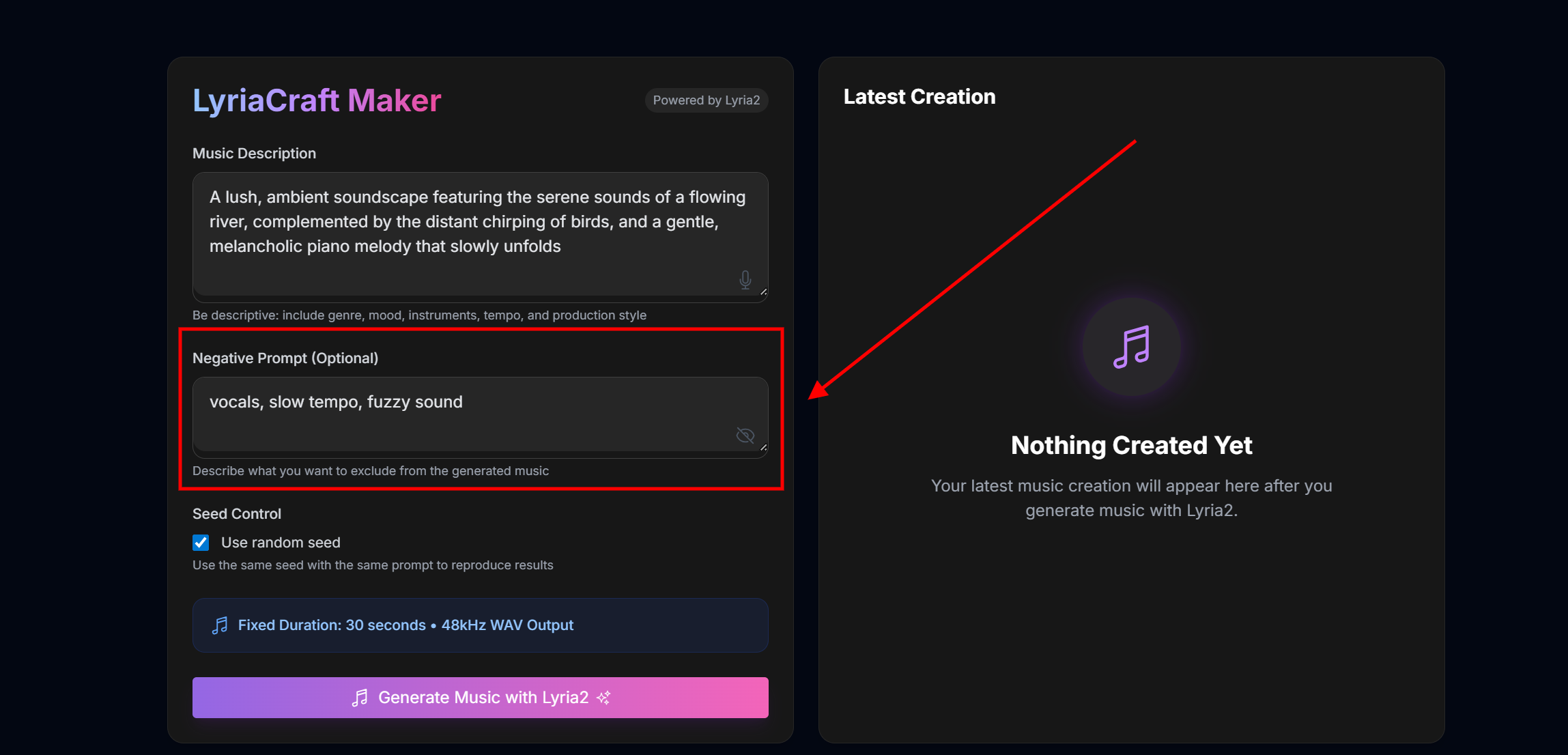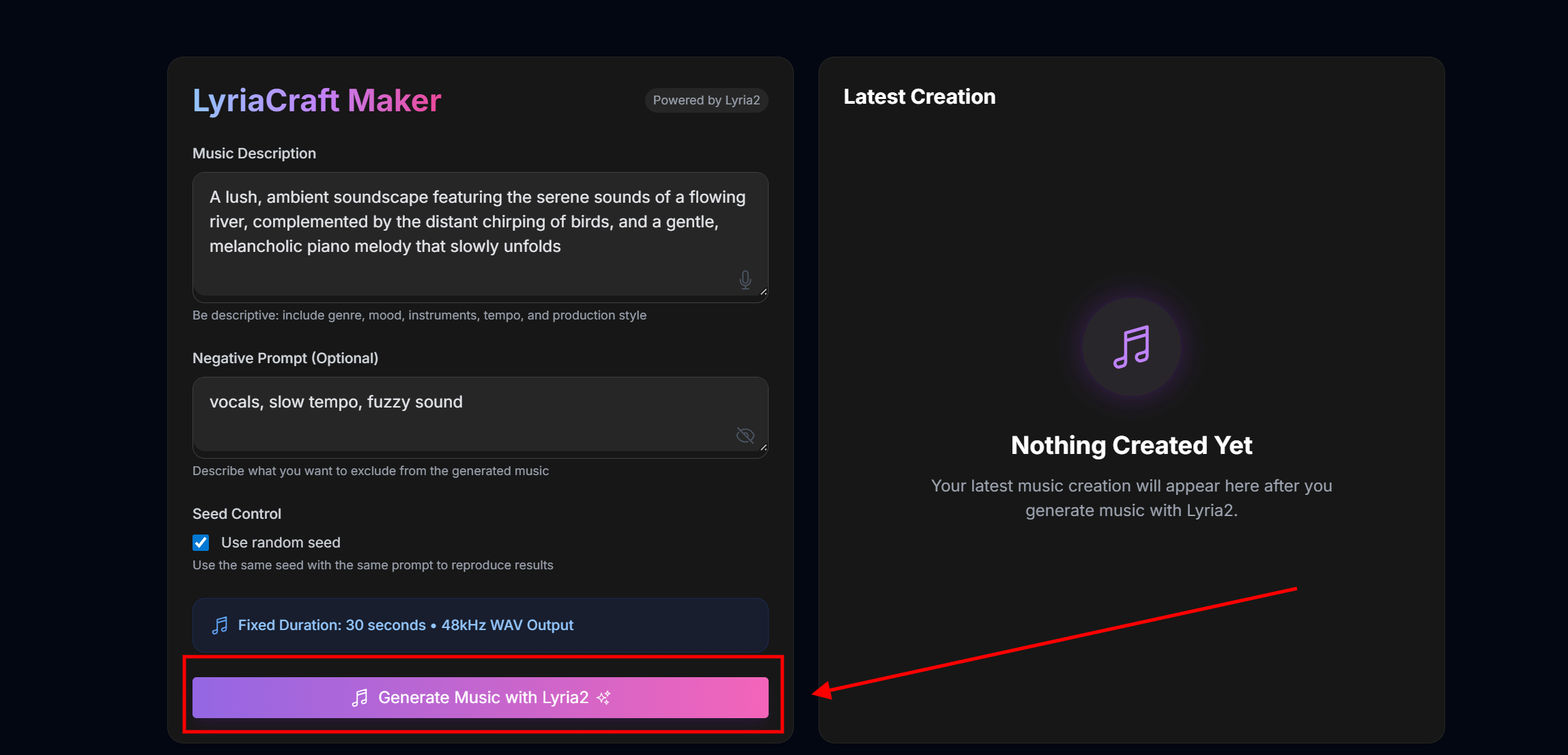LyriaCraft: AI Music Generation
Overview
LyriaCraft, powered by Google’s Lyria 2 model, is a foundation model for high-quality audio generation, capable of creating diverse soundscapes and musical pieces from text prompts. Lyria produces instrumental music.How to Use LyriaCraft
Describe Your Music
Describe the piece of music you want to generate. Be very specific and descriptive. Refer to the prompt guide for more information.

Add a Negative Prompt
A negative prompt is recommended in order to filter out any unwanted noise and sounds from the track.

Prompt Guide
Good prompts are descriptive and clear. To get your generated music closer to what you want, start with identifying your core musical idea and then refine your idea by adding keywords and modifiers.Basic Prompt Structure
Effective Lyria 2 prompts should include:- Genre/Style: “ambient electronic,” “jazz fusion,” “cinematic orchestral”
- Mood/Emotion: “melancholic,” “uplifting,” “mysterious,” “energetic”
- Instrumentation: “piano and strings,” “synthesizers and drums,” “acoustic guitar”
- Tempo/Energy: “slow and contemplative,” “driving beat,” “moderate pace”
Advanced Prompting Techniques
For more sophisticated results, incorporate:- Production Style: “lo-fi,” “crisp and clean,” “warm analog sound”
- Musical Elements: “arpeggiated patterns,” “sustained chords,” “rhythmic percussion”
- Atmospheric Details: “reverb-drenched,” “intimate close-miked sound,” “spacious mix”
Genre-Specific Approaches
Electronic Music
Describe the synthesizer types and beat patterns you want. Try “Deep house with warm analog bass, crisp hi-hats, and atmospheric pads.”
Orchestral Music
Specify which instrument sections to include. Use prompts like “Chamber orchestra with intimate string quartet and solo woodwind melodies.”
Ambient Music
Focus on atmosphere rather than rhythm. Describe textures with prompts like “Ethereal ambient soundscape with evolving textures and subtle harmonic shifts.”
Common Pitfalls to Avoid
- Don’t make your prompts too complicated. Keep them simple and focused.
- Avoid contradictory instructions like asking for music that’s both “fast and slow.”
- Be specific about what you want instead of using vague descriptions.
- Always use the negative prompt field to exclude unwanted sounds.

